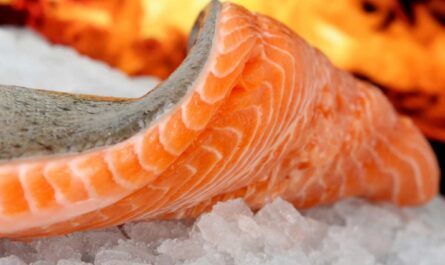Black Tea vs Milk Tea: what are the benefits and side effects? Black tea and milk tea offer distinct benefits and potential side effects. Black tea, rich in antioxidants and low in calories, supports heart health and may improve focus. Its caffeine content can boost alertness but may disrupt sleep if consumed excessively. On the other hand, milk tea combines black tea with milk, providing added nutrients like calcium and vitamin D. However, the additional calories from milk and potential sugar content may contribute to weight gain and dental issues. Both teas offer hydration and can be part of a balanced diet, but moderation is key to maximize benefits and minimizing potential drawbacks.
15 Benefits of Black Tea
Black tea, an ageless elixir with roots deeply embedded in ancient traditions, stands out as a beacon of wellness among various tea variants. Derived from the Camellia sinensis plant, its distinctive dark hue and robust flavor hint at the intricate chemical composition that harbors a plethora of health benefits. The journey through these benefits unfolds like a tapestry, weaving together elements of history, culture, and science.
Versatility in Culinary Symphony: Beyond the Teacup
The benefits of black tea extend beyond the teacup, finding a place in the culinary symphony. From marinades to desserts, its robust flavor profile enhances a myriad of dishes. Embracing black tea in culinary creations not only amplifies taste but also adds a dash of health, making it a versatile and delectable addition to the epicurean journey.
Antioxidant Richness: Fortifying the Body’s Defense
At the core of black tea’s health benefits lies its remarkable antioxidant profile. Polyphenols, such as theaflavins and catechins, grace this brew, imparting it with potent free-radical-fighting capabilities. These antioxidants not only combat oxidative stress but also play a pivotal role in bolstering the immune system, shielding the body from a myriad of ailments.
Heart Health: Nurturing Cardiovascular Harmony
Sipping on black tea may be a heart-healthy habit. Studies suggest that regular consumption can contribute to lower levels of LDL cholesterol, promoting cardiovascular well-being. The synergy of antioxidants and compounds like flavonoids works in harmony, supporting optimal blood vessel function and maintaining blood pressure within a healthy range.
Cognitive Brilliance: Fostering Mental Acuity
Delving into the cognitive realm, black tea emerges as a cognitive ally. The presence of caffeine, though milder compared to coffee, stimulates alertness and concentration. Moreover, the L-theanine content induces a sense of calmness, creating a delicate equilibrium that enhances mental clarity and focus without the jitters associated with excessive caffeine intake.
Weight Management: A Sip Towards a Balanced Body
For those navigating the labyrinth of weight management, black tea offers a natural compass. Compounds like theaflavins and catechins contribute to metabolic efficiency, potentially aiding in weight loss. The modest caffeine content acts as a mild stimulant, promoting physical activity and complementing a well-rounded approach to maintaining a healthy weight.
Digestive Serenity: Soothing the Gastric Symphony
Black tea extends its benefits to the digestive realm, providing a soothing symphony for the stomach. Tannins present in the brew exhibit anti-inflammatory properties, potentially easing digestive discomfort. This elixir’s gentle warmth may act as a digestive aid, calming spasms and promoting overall gastrointestinal well-being.
Diabetes Support: Crafting Glycemic Stability
Emerging research suggests that black tea may play a role in supporting glycemic control. The polyphenols within the tea may aid in regulating blood sugar levels, offering a modicum of assistance to those managing diabetes. While not a substitute for medical intervention, incorporating black tea into a balanced lifestyle may contribute to overall health.
Dental Elixir: Nurturing Oral Health
In the quest for oral health, black tea emerges as a formidable ally. Polyphenols, once again taking center stage, exhibit antibacterial properties that may inhibit the growth of oral bacteria. This natural elixir may contribute to the prevention of cavities and the maintenance of gum health, fortifying the fortress of one’s radiant smile.
Stress Resilience: An Aromatic Refuge
Beyond its physiological impacts, black tea extends a comforting hand in the realm of stress management. The ritualistic preparation and the aromatic embrace of this tea can act as a soothing balm for frayed nerves. The combination of caffeine and L-theanine creates a harmonious dance, promoting relaxation without inducing drowsiness.
Energy Boost: Unveiling the Power of Caffeine
While not as robust as its coffee counterpart, the caffeine in black tea unveils a nuanced and sustained energy boost. The synergy between caffeine and other compounds results in a gradual release of energy, avoiding the abrupt peaks and crashes associated with more potent stimulants. This makes black tea an ideal companion for those seeking sustained vitality throughout the day.
Immune Armor: A Shield Against Infections
Black tea’s immune-boosting properties extend beyond antioxidants. The catechins and flavonoids contribute to the fortification of the immune system, acting as a shield against various infections. Regular consumption may offer a layer of defense, particularly during seasons when immune resilience is paramount.
Radiant Skin: Nourishing from Within
The journey to radiant skin often begins from within, and black tea proves to be a noteworthy companion. Antioxidants combat free radicals that contribute to premature aging, while the anti-inflammatory properties may contribute to a clearer complexion. Hydration from the tea also plays a vital role, leaving skin supple and rejuvenated.
Anti-Inflammatory Prowess: Quelling the Flames Within
Inflammation, often the silent precursor to various ailments, encounters a formidable opponent in black tea. The tannins and polyphenols collaborate to quell inflammatory processes, potentially offering relief to conditions rooted in chronic inflammation. This anti-inflammatory prowess extends its protective cloak over a spectrum of bodily systems.
Bone Health: Strengthening the Skeletal Framework
Beyond the sensory delight of each sip, black tea may play a role in fortifying the skeletal framework. The flavonoids present in this brew are believed to contribute to bone health, potentially reducing the risk of conditions like osteoporosis. While not a replacement for dedicated bone health measures, it adds a flavorful layer to the journey of holistic well-being.
15 Benefits of Milk Tea
Beyond its physiological benefits, milk tea stands as a social connector, fostering moments of togetherness and camaraderie. The ritual of sharing a cup of tea transcends cultural boundaries, providing a universal platform for communication and bonding. Whether enjoyed in intimate gatherings or during casual conversations, milk tea becomes more than a beverage; it transforms into a symbol of shared experiences and communal warmth.
Antioxidant-Rich Delight
Indulging in a steaming cup of milk tea offers more than just a comforting experience; it provides a plethora of antioxidants that contribute to overall well-being. The amalgamation of tea leaves and milk creates a robust elixir, brimming with polyphenols and catechins. These compounds actively combat free radicals in the body, mitigating oxidative stress and conferring protective benefits to vital organs. The antioxidant-rich profile of milk tea not only invigorates the senses but also promotes long-term health.
Enhanced Cognitive Function
Beyond its delectable taste, milk tea emerges as a champion in bolstering cognitive function. The caffeine content present in tea leaves, coupled with the soothing properties of milk, collaboratively stimulate alertness and concentration. This dynamic combination fosters mental acuity, making milk tea a preferred beverage for those seeking a midday cognitive boost or an early morning mental recharge.
Bone Health Reinforcement
Milk tea stands as an unsung hero in fortifying bone health, owing to the dual influence of tea’s flavonoids and milk’s calcium content. The symbiotic relationship between these two components aids in the absorption and retention of calcium, a crucial mineral for maintaining strong and resilient bones. Regular consumption of milk tea not only satiates the palate but also contributes to skeletal integrity, making it a valuable addition to a bone-conscious lifestyle.
Digestive Elixir
The harmonious marriage of tea and milk extends its benevolent touch to the digestive system. Warm milk tea possesses inherent soothing properties that can alleviate digestive discomfort. The combination of tea’s polyphenols and milk’s lactose lends a gentle hand in easing indigestion and promoting a healthy gut environment. Sipping on a cup of milk tea becomes an inviting ritual, offering not only gastronomic pleasure but also digestive respite.
Weight Management Ally
Contrary to the misconception that indulging in milk tea hampers weight management goals, this beverage can indeed be a supportive ally in the pursuit of a balanced lifestyle. The modest calorie count, coupled with the metabolism-boosting properties of tea, positions milk tea as a guilt-free option for those mindful of their weight. The interplay of flavors in milk tea provides a satisfying alternative to calorie-laden beverages, making it a smart choice for those navigating the delicate balance of taste and health.
Immune System Fortification
The immune-boosting potential of milk tea becomes evident through its diverse array of beneficial compounds. The amalgamation of antioxidants, vitamins, and minerals fortifies the body’s defense mechanisms, acting as a shield against infections and illnesses. Regular consumption of milk tea can be regarded as a proactive step towards nurturing a robust immune system, an invaluable asset in the face of ever-present health challenges.
Stress-Relief Elixir
In the hustle and bustle of modern life, a comforting cup of milk tea emerges as a reliable stress-relief elixir. The inherent calming properties of tea, accentuated by the soothing nature of milk, create a beverage that transcends mere taste. The ritualistic act of sipping on warm milk tea becomes a meditative pause, allowing individuals to unwind, decompress, and find solace amidst life’s demanding moments.
Cardiovascular Wellness
Delving into the realms of cardiovascular health, milk tea unveils its potential as a supporter of heart well-being. The polyphenols present in tea actively contribute to reducing blood pressure and cholesterol levels, mitigating the risk of cardiovascular diseases. The addition of milk not only enhances the flavor but also brings forth additional cardiovascular benefits, making a compelling case for the inclusion of milk tea in a heart-conscious diet.
Skin Radiance Enhancement
Embarking on the journey of radiant skin, milk tea plays an unexpected role as a contributor to skin health. The antioxidants present in tea combat free radicals, mitigating the oxidative stress that contributes to premature aging. The combination of tea and milk also provides hydration, fostering skin elasticity and suppleness. Sipping on milk tea becomes a delightful beauty ritual, intertwining indulgence with skin-nourishing properties.
Blood Sugar Regulation
In the intricate tapestry of health, milk tea threads its way into blood sugar regulation. The polyphenols in tea exhibit the potential to improve insulin sensitivity, aiding in the management of blood sugar levels. The addition of milk introduces a balancing act, preventing rapid spikes in blood sugar. For individuals mindful of maintaining stable blood sugar, incorporating milk tea into their routine may prove to be a tasteful and health-conscious choice.

Hormonal Harmony
The interplay between tea and milk extends its influence on hormonal balance. Certain compounds in tea, such as catechins, have been linked to hormonal regulation, contributing to a sense of equilibrium within the body. Milk complements this harmony by providing essential nutrients that support overall hormonal well-being. For those navigating the ebbs and flows of hormonal changes, a cup of milk tea becomes more than a beverage; it transforms into a nurturing companion in the journey towards hormonal harmony.
Dental Health Guardian
While the notion of tea staining teeth may linger, the dental benefits of milk tea are often overlooked. The fluoride content in tea, coupled with the calcium from milk, forms a formidable alliance in promoting dental health. These minerals fortify tooth enamel, warding off cavities and enhancing overall oral hygiene. Choosing milk tea as a beverage not only delights the taste buds but also contributes to the maintenance of a healthy and resilient smile.
Hydration in Style
In the quest for optimal hydration, milk tea emerges as a tasteful contender. The fluid content in tea, combined with the additional hydration from milk, ensures that sipping on a cup of milk tea contributes to the body’s overall fluid intake. This makes it a stylish and flavorful alternative to plain water, encouraging individuals to meet their hydration goals with a touch of sophistication and indulgence.
Rich Source of Vitamins
Milk tea unveils itself as a trove of essential vitamins, enriching the body with a variety of micronutrients. The presence of vitamins such as B-complex vitamins, including B2 and B12, in milk, coupled with the vitamin content in tea, adds a nutritional dimension to this beloved beverage. Regular consumption of milk tea becomes a delightful means of supplementing the body with vital vitamins, contributing to overall health and vitality.
Culinary Versatility
The allure of milk tea extends beyond its traditional form, embracing culinary versatility. The base of tea and milk serves as a canvas for creative culinary exploration, giving rise to a myriad of flavored variations. From spiced chai to fruity infusions, milk tea adapts to diverse palates and preferences, making it a beverage that continually surprises and delights, proving that its appeal goes far beyond its classic rendition.
10 Side Effects of Black tea vs Milk tea
In the realm of beverage choices, the perennial debate between black tea and milk tea persists, each offering a unique sensory experience. Black tea, celebrated for its robust flavor and antioxidant-rich composition, stands in stark contrast to the creamy allure of milk tea, a concoction where tea and milk dance in a harmonious blend. Beyond the pleasantries of taste, however, lie potential side effects that merit careful consideration. This exploration unveils ten side effects associated with the consumption of these beloved teas. How AI, ChatGPT maximizes earnings of many people in minutes
Oxalates: The Unseen Culprits in Black Tea
Black tea, esteemed for its boldness, harbors a less apparent adversary – oxalates. These naturally occurring compounds, while present in various foods, can crystallize in the kidneys, potentially leading to kidney stones. The tannins in black tea contribute to this phenomenon, acting as a catalyst for oxalate crystallization. Regular consumption, especially in those predisposed to kidney issues, may warrant moderation to mitigate this risk.
Tannin Troubles: A Darker Side of Black Tea
Delving deeper into the realm of black tea, the presence of tannins emerges as a double-edged sword. While these polyphenolic compounds offer antioxidant benefits, their astringency can be a harbinger of digestive distress. Excessive tannin intake may lead to nausea, stomach upset, and even constipation. Striking a balance between reaping the antioxidant rewards and avoiding tannin-related discomfort becomes imperative for the avid black tea enthusiast. Motivation – Mind – Success – Thinking – Productivity – Happiness
The Lure of Milk Tea: Caloric Caveats
In the enchanting world of milk tea, a velvety elixir that combines the comfort of tea with the creaminess of milk, caloric caution is in order. The addition of milk, often laden with fats and sugars, transforms a seemingly innocuous cup into a calorific indulgence. Weight-conscious imbibers should be mindful, as the love affair with milk tea may inadvertently contribute to caloric excess, thereby impacting overall health.
Lactose Quandaries: A Challenge in Milk Tea
As the charm of milk tea unfolds, a potential pitfall surfaces for those grappling with lactose intolerance. The milk component introduces lactose, a sugar many struggle to digest adequately. Consequently, individuals sensitive to lactose may experience bloating, gas, and stomach discomfort after savoring the creamy richness of milk tea. Opting for lactose-free milk or alternative non-dairy options becomes a strategic choice for those seeking a gentler tea experience. Business – Money Making – Marketing – E-commerce
Caffeine Conundrum: Balancing Act in Both Teas
In the grand theater of teas, caffeine takes center stage, commanding attention with its stimulant prowess. Black tea, renowned for its invigorating kick, and milk tea, often prepared with a base of black tea, share a common denominator in caffeine content. While moderate caffeine consumption is generally benign, excessive intake can manifest in jitteriness, insomnia, and heightened anxiety. Balancing one’s tea habit becomes paramount to prevent the unwelcome side effects of caffeine overload. Health books, guides, exercises, habits, Diets, and more
Dental Dilemmas: Treading Carefully with Milk Tea
Milk tea, despite its creamy allure, can be a stealthy contributor to dental woes. The combination of sugars in milk and any added sweeteners fosters an environment conducive to dental decay. Regular indulgence in sweetened milk tea may pave the way for cavities and enamel erosion. Vigilance in oral hygiene practices, including prompt brushing and flossing, becomes crucial to navigating this dental dilemma without sacrificing the joy of sipping a comforting cup.
Iron Absorption: A Black Tea Quirk
For the ardent black tea enthusiast, a peculiar interaction with iron absorption comes into play. The tannins present in black tea, while offering antioxidant properties, can impede the body’s absorption of non-heme iron from plant-based sources. This poses a nuanced challenge for individuals relying on vegetarian or vegan diets, as the inhibition of iron absorption may inadvertently contribute to deficiencies. Strategic dietary planning, incorporating vitamin C-rich foods, can counterbalance this potential drawback. Fitness – Meditation – Diet – Weight Loss – Healthy Living – Yoga
Gastrointestinal Sensitivity: A Shared Concern
Both black tea and milk tea, in their distinct ways, can pose challenges to individuals with heightened gastrointestinal sensitivity. The tannins in black tea and lactose in milk tea may collectively trigger discomfort, bloating, and irregular bowel movements in those predisposed to digestive issues. Tailoring tea consumption to individual tolerance levels becomes essential, with an emphasis on mindful sipping to avoid exacerbating gastrointestinal concerns. Tea, Coffee, Energy Drinks, Juice, Beverage, Smoothie, and more
Sugary Indulgences: A Hidden Peril in Milk Tea
While the sweetness of milk tea can be a delightful indulgence, it harbors a hidden peril in the form of added sugars. Commercially available or homemade varieties often teem with sugar, contributing to excessive calorie intake and potential health risks. The frequent consumption of sugary milk tea correlates with an increased risk of obesity, type 2 diabetes, and cardiovascular issues. Opting for unsweetened or lightly sweetened alternatives empowers enthusiasts to relish the creamy notes without compromising health. RPM 3.0 – 60% CONVERSION & Money for Affiliate Marketing
Individual Variability: Navigating Personal Responses
Ultimately, the impact of black tea and milk tea varies across individuals, influenced by genetic predispositions, health status, and overall lifestyle. While some may revel in the invigorating embrace of black tea without repercussions, others may find solace in the creamy symphony of milk tea without adverse effects. Understanding one’s body and heeding its signals enables tea enthusiasts to navigate the nuanced landscape of potential side effects, ensuring a personalized and enjoyable tea-drinking experience.
Other Interesting Articles
- 20 Benefits of Drinking Tea Before Breakfast, Side Effects
- 21 Honeysuckle Flower Tea Health Benefits, and Side Effects
- 22 Benefits of Drinking Hot Tea After A Meal, Side Effects
- 22 Lemon Tea Health Benefits, Nutrition, Recipes, Side Effects
- 20 Benefits of Drinking Tea with Milk and Sugar, Side Effects
- 19 Olive Leaf Tea Health Benefits, Nutrition, Recipes, Effects
- 15 Mint Tea Health Benefits, Nutrition, Recipes, Side Effects
- 20 Common Disadvantages and Side Effects of Drinking Tea
- 17 Pumpkin Spice Tea Health Benefits, Nutrition, Side Effects
- 21 Health Benefits of Drinking Tea with Milk without Sugar
- 17 Bush Tea Health Benefits, Nutrition, Recipes, Side Effects
- 20 Benefits of Drinking Tea in the Afternoon with Weight
- 14 Mamaki Tea Health Benefits, Nutrition, Recipes, Side Effects
- 20 Amazing Health Benefits of Drinking Tea in the Afternoon
- 12 Yerba Mate Tea Health Benefits, Nutrition, Side Effects
- 22 Benefits of Drinking Tea in the Evening with Cinnamon
- 16 Turmeric Tea Health Benefits, Nutrition, Side Effects
- 23 Health Benefits of Drinking Tea in the Evening with Ginger
- 14 Chrysanthemum Tea Health Benefits, Nutrition, Side Effects
- 20 Health Benefits of Drinking Tea in the Evening with Lemon




